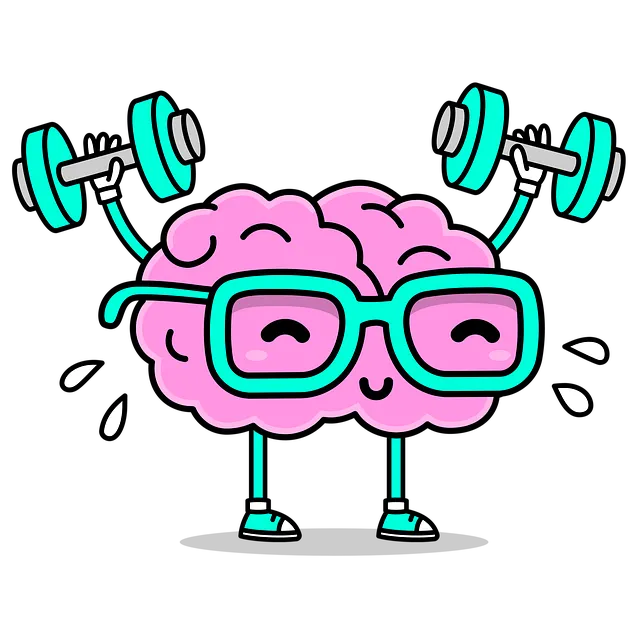Longmont Kaiser Permanente's dedicated mental health services reflect a growing demand driven by cultural acceptance of mental illness and self-care priorities. Apps designed for mental wellness play a crucial role in reducing stigma and improving outcomes through accessible tools and communities. Key features include CBT techniques, stress reduction methods, and secure data protection. Privacy is paramount with robust encryption and compliance standards. Engaging user experiences foster consistent app use and positive mental health outcomes. Inspired by the Longmont Kaiser Permanente mental health services number, these apps aim to revolutionize mental wellness in the digital era.
Mental wellness apps are transforming access to support, with growing demand driven by modern lifestyle stresses. This article explores the development of effective mental health applications, focusing on key features that foster healing. We discuss incorporating evidence-based therapies, ensuring robust privacy and security, and enhancing user experience through accessibility and engaging design. By examining these aspects, from Longmont Kaiser Permanente’s perspective, we aim to contribute to the evolution of mental wellness solutions for a wider audience.
- Understanding Mental Health App Demand
- Defining Key Features for Effective Support
- Incorporating Evidence-Based Therapies
- Privacy and Security Measures in Design
- User Experience: Accessibility and Engagement
Understanding Mental Health App Demand

The demand for accessible mental health services has been steadily increasing, driven by a growing awareness and acceptance of mental illness. In Longmont, Kaiser Permanente’s dedicated mental health services number reflects this trend, with more people reaching out for support than ever before. This shift is not just about convenience; it signifies a broader cultural change where individuals are taking proactive steps towards self-care practices and seeking help without stigma.
Apps designed for mental wellness play a pivotal role in catering to this demand. They offer convenient, personalized tools for coping skills development, from guided meditations and mood tracking to crisis support resources. By leveraging technology, these apps aim to reduce the mental illness stigma, providing accessible and confidential spaces where users can learn, grow, and connect with like-minded communities—all essential aspects of fostering better mental health outcomes.
Defining Key Features for Effective Support

In developing a mental wellness app, defining key features that offer effective support is paramount. A well-designed application should incorporate various tools and resources tailored to users’ unique needs, reflecting the diverse spectrum of mental health concerns. For instance, integrating stress reduction methods like mindfulness exercises, meditation sessions, and cognitive behavioral therapy (CBT) techniques can significantly enhance app usability. These features not only help users manage stress but also empower them with long-lasting stress management skills.
Additionally, incorporating features that connect users to relevant Longmont Kaiser Permanente mental health services can be transformative. By providing easy access to professional support through dedicated hotlines or online consultations, the app ensures users receive timely care when needed. Such integrations not only complement self-help functionalities but also underscore the app’s commitment to comprehensive mental wellness solutions.
Incorporating Evidence-Based Therapies

When developing a mental wellness app, incorporating evidence-based therapies is a pivotal step to ensure its effectiveness and reliability. Longmont Kaiser Permanente mental health services number serves as a testament to the accessibility of reputable resources. These therapies, backed by rigorous scientific research, can significantly enhance users’ mental wellness journeys. For instance, Cognitive Behavioral Therapy (CBT) has proven effective in treating various mental health conditions by helping individuals identify and change negative thought patterns and behaviors.
Incorporating features like confidence-boosting exercises, self-awareness activities, and practices derived from mindfulness meditation—all components often found in Longmont Kaiser Permanente’s offerings—can empower users to actively participate in their mental wellness. Additionally, a Mental Wellness Podcast Series Production can provide engaging audio content, delivering therapeutic techniques and insights accessible on the go. By combining evidence-based therapies with engaging multimedia elements, app developers can create tools that not only support but also transform users’ mental health and overall well-being.
Privacy and Security Measures in Design

When developing a mental wellness app, privacy and security are paramount. Users often share sensitive information about their emotional states and experiences, making it crucial for developers to implement robust data protection measures. This includes encrypting user data, ensuring secure storage, and adhering to strict compliance standards like HIPAA (Health Insurance Portability and Accountability Act) in regions such as the United States, where mental health services, like those offered by Longmont Kaiser Permanente, are protected by law.
Designing with privacy in mind involves transparency about data collection practices and gaining explicit user consent for processing personal information. Features promoting mindfulness meditation or emotional regulation should be accompanied by clear security guarantees to build trust among users. Incorporating secure login mechanisms, two-factor authentication, and end-to-end encryption ensures that users’ mental wellness journeys remain confidential, fostering a safe environment for self-reflection and growth.
User Experience: Accessibility and Engagement

Creating a mental wellness app is more than just developing software; it’s about crafting an accessible and engaging user experience that caters to diverse needs. Longmont Kaiser Permanente’s mental health services number highlights the growing demand for easily accessible mental health resources, echoing broader trends in Mental Health Awareness. Effective apps must prioritize intuitive navigation, clear communication, and simple interfaces to ensure users feel comfortable exploring their emotional well-being.
Engagement is key, leveraging Emotional Well-being Promotion Techniques such as gamification or personalized content delivery. Communication Strategies should be inclusive, considering different learning styles and preferences for information sharing. A successful app will foster a sense of belonging and encourage consistent use, ultimately contributing to positive mental health outcomes in a digital age where these tools are becoming increasingly vital.
Mental wellness app development is a burgeoning field, driven by increasing demand for accessible mental health services, as evidenced by the success of Longmont Kaiser Permanente’s offerings. By incorporating evidence-based therapies, prioritizing user experience with a focus on accessibility and engagement, and ensuring robust privacy and security measures, developers can create apps that truly support users’ mental well-being. This approach not only caters to the growing need for digital mental health solutions but also ensures that individuals have tools tailored to their unique needs, ultimately fostering better mental health outcomes.






